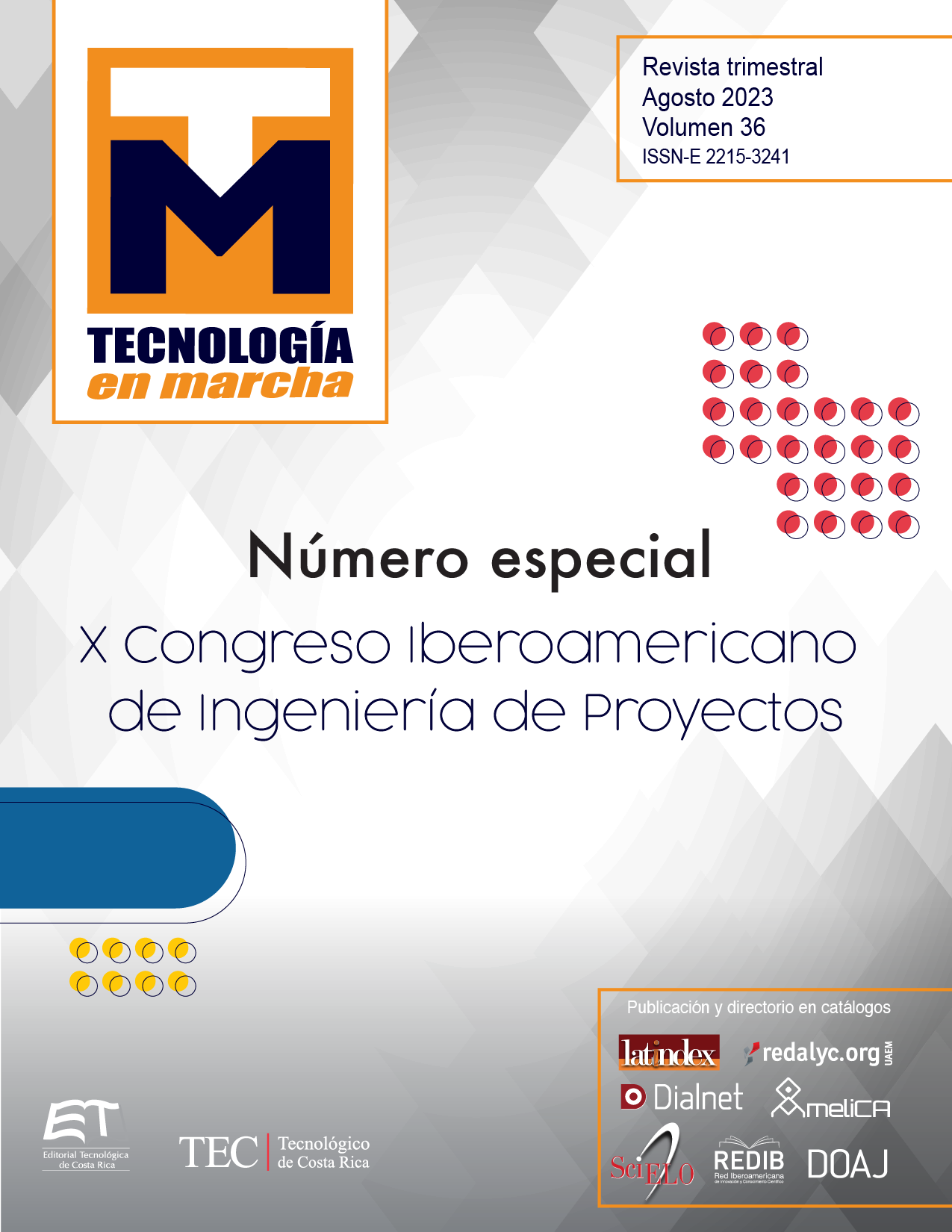Impact of the BIM methodology in the management of construction projects
Main Article Content
Abstract
In this research, the impact of the BIM methodology in the management of construction projects will be analyzed, recognizing the factors that limit the implementation of this methodology in the construction sector, through the study of existing projects and based on the experience of professionals in the synthesized area in various indexed publications from which a bibliometric analysis was materialized using the Vos Viewer software. BIM, or Building Information Modeling, is a methodology that helps to manage any construction project without discriminating in its size, executing management and coordination of the execution of the entire project from its early phases to the demobilization of the product. The classic CAD methodology has been used for more than two decades and continues to work for numerous construction sites around the world, it is simple to use and implemented by a large number of engineers and architects, but it does not have the same impact as the BIM methodology. which collects much more information than that provided by the traditional methodology. In the projects studied in this research it is possible to recognize multiple advantages and benefits of this methodology that is being implemented little by little in the world, improving the quality of the final project, saving time and costs by reducing extraordinary works or works redone with its application to detect interferences between specialties, improving collaborative work and visualization for the client.
Article Details

This work is licensed under a Creative Commons Attribution-NonCommercial-NoDerivatives 4.0 International License.
Los autores conservan los derechos de autor y ceden a la revista el derecho de la primera publicación y pueda editarlo, reproducirlo, distribuirlo, exhibirlo y comunicarlo en el país y en el extranjero mediante medios impresos y electrónicos. Asimismo, asumen el compromiso sobre cualquier litigio o reclamación relacionada con derechos de propiedad intelectual, exonerando de responsabilidad a la Editorial Tecnológica de Costa Rica. Además, se establece que los autores pueden realizar otros acuerdos contractuales independientes y adicionales para la distribución no exclusiva de la versión del artículo publicado en esta revista (p. ej., incluirlo en un repositorio institucional o publicarlo en un libro) siempre que indiquen claramente que el trabajo se publicó por primera vez en esta revista.
References
L. X. Sierra Aponte, «Gestión de proyectos de construcción con metodología BIM “Building Information Modeling”», 2016.
A. H. E. Sepúlveda Zambrano, «Impactos en la implementación de la metodología BIM en el sector construcción: una revisión sistemática de la literatura científica desde el 2015 hasta el 2019», 2021.
D. C. Naranjo Bejarano, «Implementación de la metodología BIM para la gestión de proyectos de construcción», 2021.
J. Torroglosa Díaz, «Impacto del BIM en la gestión del proyecto y la obra de arquitectura: un proyecto con REVIT», PhD Thesis, Universitat Politècnica de València, 2018.
L. Alvarado Acuña, J. Huidobro Arabia, y S. Acevedo Acevedo, «Propuesta de un modelo para integrar la metodología BIM 4D y 5D con la gestión de proyectos en el sector inmobiliario de Antofagasta, Chile.», 2018.
J. M. Zaragoza Angulo y J. M. Morea Núñez, «Guía práctica para la implantación de entornos BIM en despachos de arquitectura», 2015.
R. O. L. Saldías Silva, «Estimación de los beneficios de realizar una coordinación digital de proyectos con tecnologías BIM», 2010.
Y. Lu, Z. Wu, R. Chang, y Y. Li, «Building Information Modeling (BIM) for green buildings: A critical review and future directions», Autom. Constr., vol. 83, pp. 134-148, 2017.
V. A. M. Pacheco, R. F. H. Valencia, F. C. M. La Ribera, y G. C. C. Miranda, «Evaluación técnico-económica de modelación y coordinación bim en proyectos de edificación de mediana envergadura: un caso de estudio», J. Bim Constr. Manag., vol. 1, n.o 1, pp. 1-10, 2019.
J. A. Bermúdez-Zúñiga y M. A. Castrillón-Parada, «Análisis de los factores financieros, técnicos y humanos que limitan la implementación de la metodología BIM en la fase de construcción del proyecto CEFE Las Cometas», 2022, Accedido: 28 de octubre de 2022. [En línea]. Disponible en: https://repository.ucatolica.edu.co/handle/10983/27244
G. Oussouboure y R. D. Victore, «La asignación de recursos en la Gestión de Proyectos orientada a la metodología BIM.», Rev. Arquit. E Ing., vol. 11, n.o 1, p. 4, 2017.

